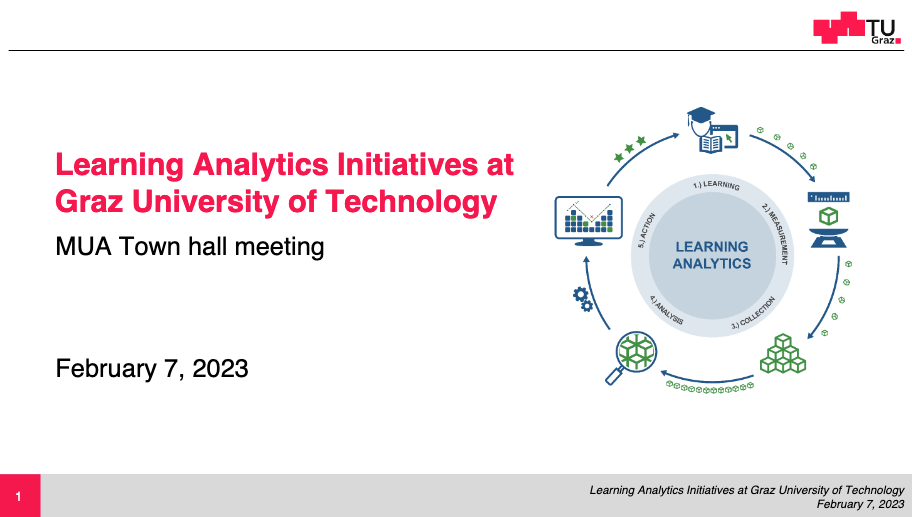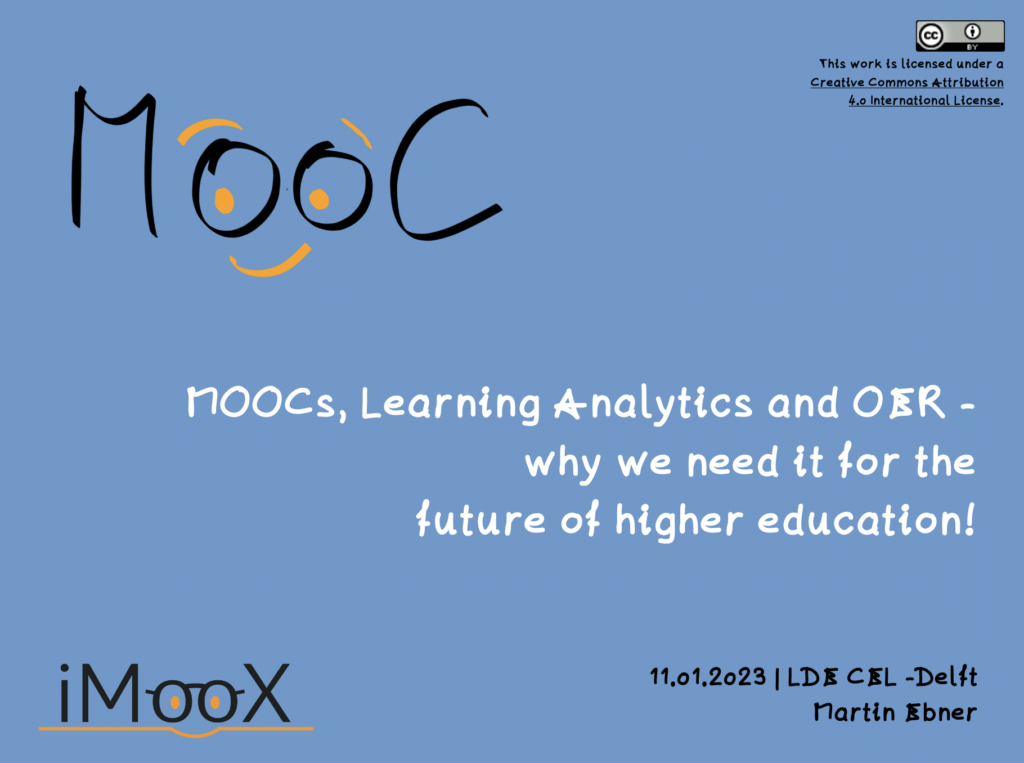Our chapter about „Development of an Austrian OER Certification for Higher Education Institutions and Their Employees“ got published right now – enjoy the interesting read 🙂
The “Forum Neue Medien in der Lehre Austria” (fnma) is responsible for the development and introduction of a procedure to attest open educational resources (OER) competences and OER activities in higher education. The aim is to develop and implement a convincing and recognized procedure that succeeds in sustainably promoting and making visible OER activities and OER competences at Austria’s higher education institutions. Within this paper, the development of the Austrian OER certification approach, in other words its framework, will be addressed. A working plan and first results will be presented; among others, the competence framework and its compatibility with existing frameworks.
[full chapter @ ResearchGate]
[full chapter @ Book’s homepage]
Reference: Schön, S., Ebner, M., Berger, E., Brandhofer, G., Edelsbrunner, S., Gröblinger, O., Hackl, C., Jadin, T., Kopp, M., Neuböck, K., Proinger, J., Schmölz, A. & Steinbacher, H.-P. (2023). Development of an Austrian OER Certification for Higher Education Institutions and Their Employees. In: Otto, D., Scharnberg, G., Kerres, M., Zawacki-Richter, O. (eds) Distributed Learning Ecosystems . Springer VS, Wiesbaden. https://doi.org/10.1007/978-3-658-38703-7_9



